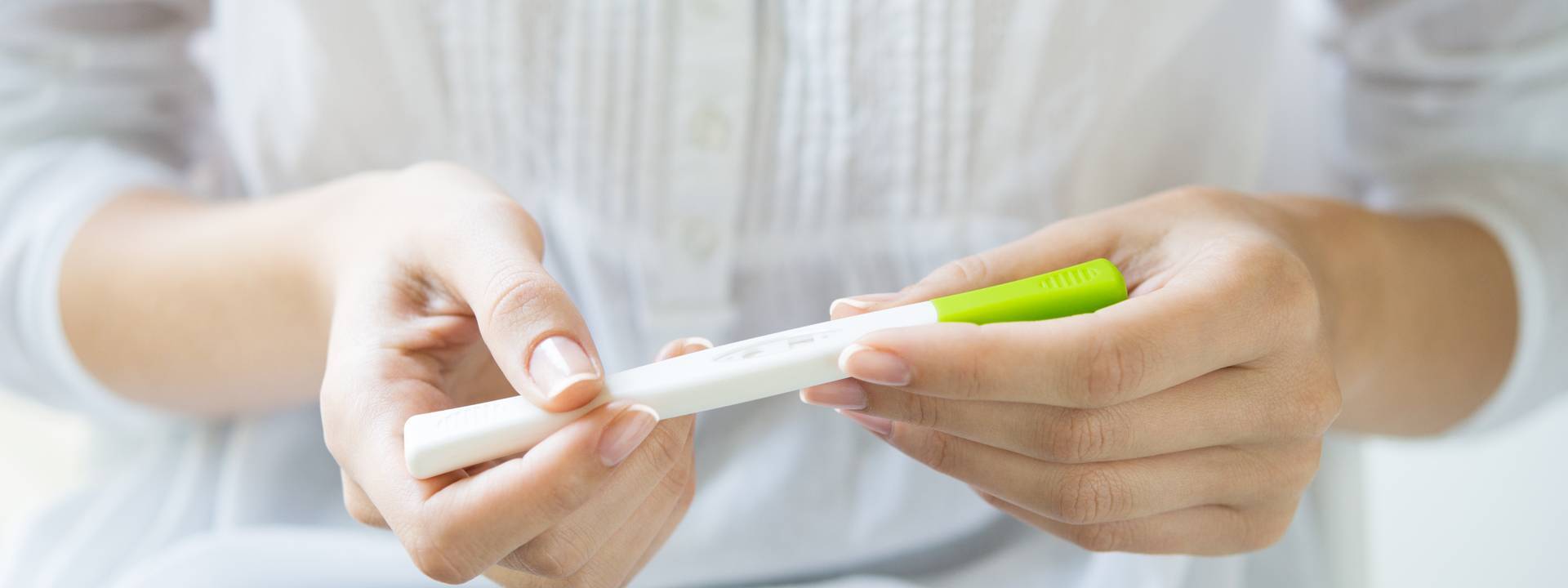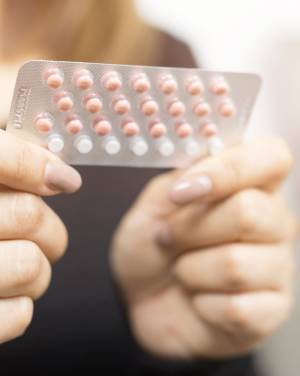How Do You Take a Pregnancy Test?
- A generic pregnancy test is an initial evaluation tool that helps determine whether you are pregnant. Reasons to take a test are a missed period, symptoms that might be signs of pregnancy, or anything else that makes you suspect a pregnancy.
- Pregnancy tests analyze the presence of the pregnancy hormone ß-hCG in your urine.
- Pregnancy tests are easy to take at home. Continue reading to learn more about how it is done and other essential information.
🤰 Am I pregnant? — Take the Online Pregnancy Test!
📆 How far along am I? — Use the Pregnancy Tracker to find out!
Do you have any questions or concerns? Write your message directly here ⬇️
Am I Pregnant? — The Home Pregnancy Test
All store-bought pregnancy tests are urine-based tests and can be taken at home. The test stick is held into the urine stream or dipped into a urine-filled cup to test whether you are pregnant. The test result will appear in the display window.
How Do I Read a Pregnancy Test?
The display on the pregnancy test stick will vary, depending on the brand. Most tests indicate the result through lines:
- One line means you are pregnant.
- No line means you are not pregnant.
Sometimes pregnancy tests have a control window beside the test window:
- A line in the control window indicates that the test is working correctly. If only the control line is visible, this means: The test worked — not pregnant.
- If two lines are visible, one in each window, this means: The test worked — pregnant.
- The test is defective or performed incorrectly if no line appears in the control window. The display in the result window is, therefore, irrelevant.
Words may appear on digital tests, such as "not pregnant.”
To determine the meaning of each marker in your particular test, read the package insert. Some pregnancy tests indicate the approximate week of pregnancy. This result is based on the concentration of the pregnancy hormone ß-hCG, which increases weekly.
How Reliable Is the Result?
A reliable result is only achievable if the test is working correctly and implantation of the fertilized egg has already occurred, i.e., about five to six days after fertilization. Only then does the level of pregnancy hormone ß-hCG rise and become detectible.
Taking a pregnancy test too soon may falsify the result.
When Is the Best Time to Take a Pregnancy Test?
a) How Soon Can a Pregnancy Be Detected?
Even though the production of pregnancy hormones begins with implantation, the amount is often too small to detect in the early days of pregnancy. Most pregnancy tests provide a reliable result after the first day of your missed period. If your period is already late, you can take a test now.
For a more reliable result, wait at least 14 days after the sexual intercourse in question since your period may be delayed for other reasons.
b) What Is the Earliest Test Possible?
Early-result pregnancy tests are made for women who want to know as soon as possible. They work just like all the other urine tests but are more sensitive, reacting to minute amounts of pregnancy hormones in the urine.
Many early pregnancy tests already respond a few days before one’s period is due. For more details, please refer to the package insert, or go to:
c) What Is the Best Time of Day to Take the Test?
For best results, take the pregnancy test first thing in the morning when the concentration of ß-hCG in the urine is highest. Of course, this does not apply to women who work night shifts. Test after a prolonged period of sleep.
Where Can I Get a Pregnancy Test?
Every pharmacy or drugstore, as well as many convenience stores, carry home pregnancy tests. Your doctor can also supply you with a test but may want to administer it in the office.
You can order one online if you want to avoid being recognized as you purchase a pregnancy test.
Blood vs. Urine Pregnancy Tests
In cases of uncertainty, your physician may order a blood test. Like in the urine test, the presence of the pregnancy hormone ß-hCG is determined. ß-hCG levels in the blood increase earlier than in the urine, making an accurate result possible only nine days post-fertilization.
What Exactly Is the Pregnancy Hormone ß-hCG?
The abbreviation ß-hCG stands for human chorionic gonadotropin. This hormone begins to be released in a pregnant woman's body after implantation of the fertilized egg in the uterus.
This pregnancy hormone produces the hormone progesterone, which is responsible for preparing the uterus for pregnancy, thus ensuring that the embryo is supplied with nourishment.
Within days of implantation, ß-hCG can be detected in the blood and, to a lesser extent, in the urine. Pregnancy tests contain small absorbent test strips containing ß-hCG antibodies. These react as soon as they come into contact with ß-hCG in the urine. The display will show whether you are pregnant or not.
Too Anxious to Test? Positive Pregnancy Test?
Perhaps you do not feel ready to take a home pregnancy test, because
you are scared of what it might reveal. Or maybe it is still too early to know and you are struggling with this time of uncertainty. Can you think of someone to confide in? Talking about your situation may help relieve some of the tension. You can also use our online tests for guidance in your specific situation.
You may like:
- 🤔 Could my symptoms be early signs of pregnancy?
- 💧 Could I be pregnant from the pull-out method or pre-cum?
- 💊 Should I take Plan B?
If your test was positive, you are probably wondering what to do next. It would make sense to see your gynecologist as soon as possible. But of course, you can also allow for some time to yourself to let the news sink in.
A positive pregnancy test can give rise to a mixed bag of emotions. You are not alone! Allow us to walk alongside you by providing you with a judgment-free environment in which you can find the path that is right for you.
- 🧑⚕️ (Suspecting a) pregnancy – How soon to see a doctor?
- ⛑ Where do I go from here? — Quick Answers Quiz
- ⚖️ Wondering whether to have an abortion or not? Take the Abortion Test





















